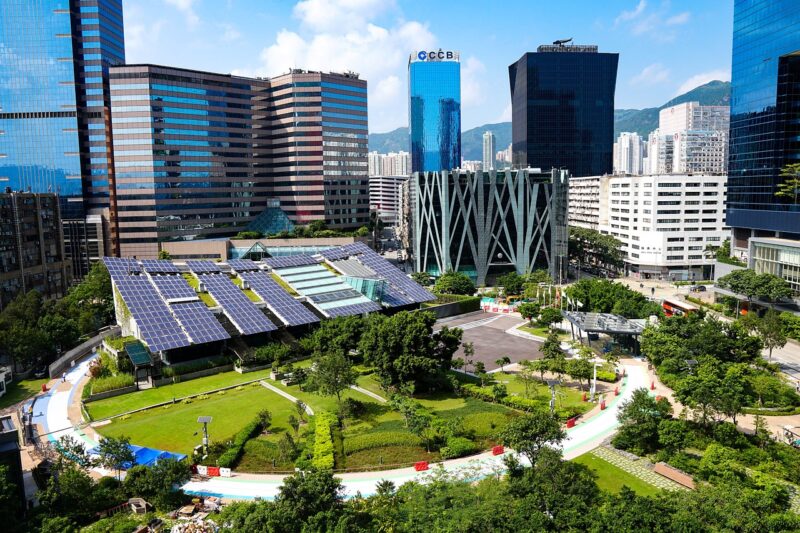How Travelers Are Shaping the Future of Sustainable Tourism
November 16, 2024

Sustainable tourism is not just a fleeting trend; it is a movement that resonates with modern travelers who are increasingly aware of their impact on the environment, local cultures, and economies. As climate change and over-tourism become pressing global issues, travelers today are taking steps to ensure their adventures contribute positively to the world around them. In this article, we will delve into how travelers are influencing the landscape of sustainable tourism and the promising future that lies ahead.
1. The Rise of Conscious Travel
Conscious travel entails making informed decisions that prioritize sustainability. This shift in mindset arises from travelers increasingly recognizing the environmental degradation caused by traditional tourism practices.
Advocates of conscious travel take aspects such as carbon footprints, ethical sourcing, and cultural sensitivity into account. For instance, many travelers are opting for eco-friendly lodging options that support environmental conservation and ethical practices. From the boutique hotels using solar panels to treehouses built from sustainable materials, conscious travelers are gravitating towards accommodations that minimize their ecological impact.
A 2022 study revealed that nearly 70% of travelers expressed a desire to make sustainable travel choices, signifying a major shift in consumer behavior.
2. Supporting Local Economies
Travelers are now focusing on supporting local economies in the regions they visit. This involves choosing local guides, dining at family-owned restaurants, and purchasing handmade crafts rather than generic souvenirs. By prioritizing local businesses, travelers contribute to economic resilience and community development.
For example, in Bali, many tourists participate in “Temple Tour” packages offered by local residents, which allows them to explore cultural landmarks while directly supporting the guides and their families. Additionally, tourists are choosing home-stays over resorts to gain authentic experiences while providing steadier income for locals.
The Benefits of Supporting Local Economies:
- Strengthens cultural identity and traditions
- Encourages a diversified local economy
- Fosters goodwill and friendship between visitors and local communities
3. Advancements in Eco-Tech
Innovations in technology are playing a crucial role in promoting sustainable tourism. Travelers are increasingly using apps and platforms designed to showcase sustainable options, making eco-friendly choices more accessible.
Examples of Eco-Tech Innovations:
- Carbon Footprint Calculators: These apps estimate the carbon output of specific travel choices, allowing travelers to opt for greener alternatives.
- Sustainable Travel Platforms: Websites dedicated to eco-friendly accommodations help users find and book green lodging options instantly.
- Wildlife Tracking Apps: Apps that help travelers responsibly engage with local wildlife, reporting sightings for conservation efforts rather than enticing over-tourism.
As green technology progresses, the impact travelers can make also grows, fostering a shared responsibility for sustainable practices.
4. Community Engagement and Volunteer Tourism
Many modern travelers seek to make a more direct positive impact by participating in volunteer tourism or “voluntourism.” This involves engaging with local communities through activities like reforestation, wildlife rescue, and education workshops.
Volunteer tourism allows travelers to immerse themselves in the environment and culture while contributing skill sets that can help local communities. It fosters understanding and builds connections that last well beyond the trip.
However, it’s crucial that all volunteer initiatives are ethically guided and do not exploit local populations. Responsible volunteer tourism ensures that initiatives directly benefit the community served rather than the traveling volunteers.
5. Emergence of Eco-Friendly Transportation
Travelers are increasingly opting for eco-friendly transportation. With the rise of electric vehicles, hydrogen-powered buses, and sustainable aviation initiatives, transportation is becoming greener than ever.
When traveling within a city, alternatives such as cycling, walking tours, or electric scooters allow visitors to reduce their carbon emissions while immersing themselves in the local atmosphere. Additionally, progressive cities worldwide are investing in extensive public transport networks, enabling easier access to sustainable modes of transport.
Benefits of Eco-Friendly Transportation:
- Reduction in greenhouse gas emissions
- Promotion of healthier lifestyles through walking and cycling
- Encouragement of local businesses through public transport usage
6. Building Awareness through Social Media
Social media is a powerful platform that continues to give voice to sustainable tourism advocates. Platforms like Instagram and TikTok enable travelers to showcase eco-friendly initiatives, share tips, and highlight ethical travel choices.
Hashtags such as #SustainableTravel and #EcoTourism have encouraged a growing community dedicated to promoting positivity while traveling. Influencers and individual travelers alike are using their reach to inspire others to consider sustainable practices.
Raising awareness about local issues and sustainable travel options informs others and adds an element of accountability. As travel stories circulate online, a ripple effect can occur; a small, eco-conscious choice can become viral and highlight sustainability’s importance in tourism.
Conclusion
The future of sustainable tourism is bright, driven by a collective effort from travelers eager to minimize their impact on the world. By preferring eco-friendly options, supporting local economies, and advocating for responsible practices, today’s travelers are paving the way for a new era of tourism that prioritizes sustainability.
As they continue to innovate and engage with communities, travelers are fostering a global movement that seeks to balance exploration with preservation. As the traveler’s role evolves, the tourism industry must also adapt, embracing sustainable practices to meet the demands of sensitive adventurers.
If you’re planning your next journey, consider how your choices can contribute to a more sustainable tourism model. Together, we can shape a future where travel enriches both the traveler and the places visited, nurturing local cultures and ecosystems while fostering a sense of global community.







